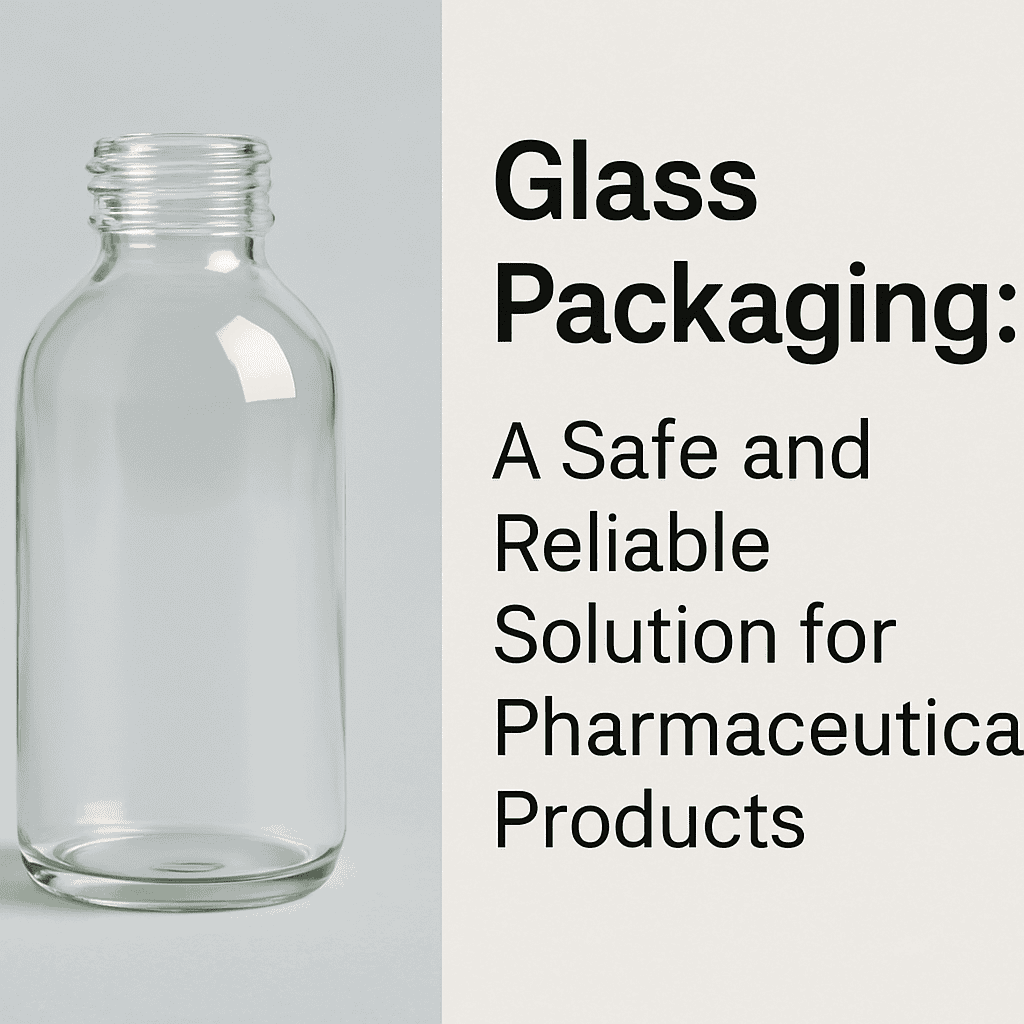The pharmaceutical industry, more than any other, demands the highest standards when it comes to the safety, integrity, and reliability of product packaging. Within this realm, glass packaging emerges as a preferred choice for preserving and protecting medications and healthcare items. Its inherent properties provide a safeguard for contents, ensuring both quality and efficacy for consumers.
The Superiority of Glass as a Packaging Material
Glass has been associated with storage and preservation for countless generations, earning its reputation as a trusted material for containing valuable substances. When considering glass for packaging, the pharmaceutical industry prioritises it for several convincing reasons.
Impermeability
One of the standout qualities of glass is its impermeability, making it non-reactive with the products it houses. This means that pharmaceuticals remain untouched by external contaminants, ensuring patient safety.
Inert Nature
Glass does not interact chemically with the pharmaceutical products it holds, which is indispensable for maintaining the integrity of the medication and preventing any degradation of its potency or purity over time.
Transparency
The clear nature of glass allows for easy visual inspection of the contents, enabling healthcare professionals and patients alike to observe the medication without compromise.
Recyclability
Aside from its practical benefits in the context of safe storage, glass is also an eco-friendly option. Its ability to be recycled repeatedly without loss of quality aligns with sustainable practices and environmental conservation efforts.
Challenges Addressed by Glass Packaging in Pharmaceuticals
The pharmaceutical sector faces ongoing challenges in product preservation and safety, many of which are aptly addressed by the use of glass packaging.
Protection from UV Light
Some medications can be sensitive to light, with ultraviolet (UV) rays able to alter their composition. Glass can be treated to offer protection against UV rays, thereby extending the shelf life of products.
Seal Integrity
Ensuring that pharmaceuticals are hermetically sealed is crucial. Glass packaging can be designed to provide an airtight environment, keeping contents sterile and ensuring safety for end-users.
Resistant to Temperature Fluctuations
Temperature control is essential in the pharmaceutical industry. Glass exhibits outstanding thermal resistance, sustaining its integrity even when subjected to sterilisation processes or varying storage conditions.
Tailoring to Specialised Needs
Given the diverse nature of pharmaceutical products, customisation in packaging is often required. Glass can be moulded into various shapes and sizes, making it a flexible option for tailor-made solutions.
Advantages of Opting for Localised Glass Packaging Solutions
In considering the benefits of glass packaging, sourcing from local manufacturers adds another layer of advantage, particularly when observing glass packaging in Australia. Proximity to manufacturers can minimise transportation risks, ensure faster delivery times, and contribute to a reduced carbon footprint.
Supporting the Local Economy
Choosing to source glass packaging domestically bolsters the local economy, providing support to Australian businesses and contributing to job creation within the community.
Strict Quality Standards
Australian manufacturers are bound by stringent quality and safety regulations, ensuring that glass packaging produced domestically meets the highest industry standards.
Agile Response to Industry Needs
Local suppliers have a greater ability to respond swiftly to the changing demands and emergency needs of the pharmaceutical industry, due to reduced logistical challenges.
Customised Solution Expertise
Australian manufacturers are skilled in providing customised glass packaging solutions that accommodate the unique requirements of pharmaceutical companies locally.
The Path Ahead for Glass Packaging and Pharmaceuticals
The affinity between the pharmaceutical industry and glass packaging is set to remain strong, especially as advancements in glass technology continue to materialise. Innovative treatments that enhance the material’s performance and sustainability further solidify glass as the packaging medium of choice for pharmaceuticals.
Advancements in Coating Technologies
Developments in surface treatments and coatings for glass packaging can create barriers that improve the shelf life and functionality of pharmaceutical products.
Design Innovations
Modern design techniques enable the creation of glass packaging that is not only more secure and user-friendly but also aesthetically appealing, aiding in brand differentiation.
Sustainability
As environmental concerns become more prevalent, the pharmaceutical industry’s reliance on glass packaging is also seen through a green lens, contributing to a more sustainable future.
Collaboration to Foster Growth
Collaboration between the pharmaceutical sector and glass packaging experts will become crucial to address mutual interests in maintaining product safety, improving drug delivery systems, and reducing environmental impact.
In summary, glass packaging is an enduring solution for pharmaceuticals that stands the test of time. With its blend of inherent safety features, adaptability, and support for environmental stewardship, the industry’s commitment to glass is well-placed. As Australian manufacturers focus on innovation and sustainability, glass packaging in Australia is poised to remain a pivotal element in the global pharmaceutical landscape.

